
Practice Perfect 812
The Top 5 Books for Trainers and Learners
The Top 5 Books for Trainers and Learners
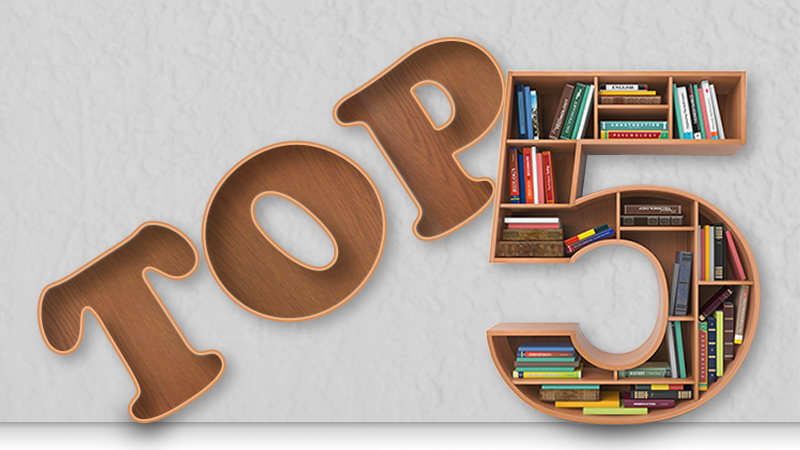
Anyone who knows me at all is well aware that I’m a pretty heavy reader. Honestly, I’m a total bookworm. I love everything about books. The rectangular shape, the tactile feel of the book in the hands, even the smell. Yes, it sounds weird, I know. But certain books have an olfactory link to memory and certain smells bring back fond memories of the past. I’m old school enough to only want to read books on paper and not on e-readers. It’s just not the same experiences.
In addition to the physical experience of reading, the more important part is what the book has to say, its message. We can learn so much from the connections created by a thoughtful author. The ability to communicate a new idea in an interesting way opens the mind to useful and perception-altering information. There’s nothing more exciting than being introduced to a new idea.
There’s nothing more exciting than being introduced to a new idea.
And that brings me to today’s topic. A little while back, a friend asked me to recommend my top five books. Choosing a favorite book is like picking a favorite child – every book is special. So, to be a little more specific, I’ve picked five books that will be helpful for every educator, regardless of what level at which you’re teaching, and every learner, regardless of where they are on the learning curve. These are books that are foundational, teaching us important concepts and methods to make us the best learners possible, to grow and reach beyond our current station, to become better than we were before reading them. These are books that I’ve read more than once. I read them with pen in hand, taking notes so as not to miss the wisdom of their message. In the image below, I also have them stacked from most fundamental at the bottom toward execution of skills upward.
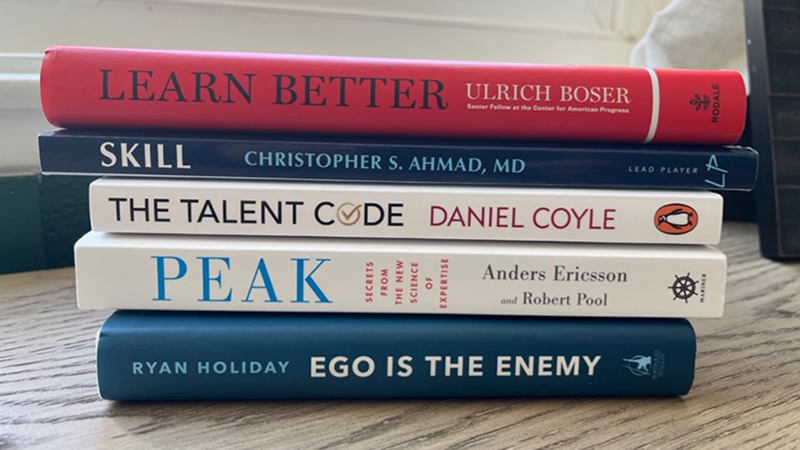
Ego Is the Enemy, by Ryan Holiday – This book is the most fundamental of my five choices because we must each lose our ego in order to learn and grow. When working with trainees, this is the most difficult aspect to work around. It’s not ignorance or lack of education. In most cases, it’s not even lack of motivation. I find it most difficult to work with individuals who have so much ego that they get in their own way, diminishing the power of constructive criticism. In this book, Holiday gives historical examples of those who have succeeded when they lose the ego, breaking the book into three major parts corresponding to our individual places in our lives: aspiration, success, and failure. The maxims he ends with after each section provide a positive and useful philosophy to fight against our own sense of self-importance.
Peak: Secrets for the New Science of Expertise, by Anders Ericsson and Robert Pool – I’ve mentioned this one before. In fact, I don’t think I could talk about it enough! Ericsson is the world’s expert on experts. In this engaging book, he lays out the science behind deliberate practice, the method used by all of the highest-level performers in many human endeavors. He lays out the exact ways each of us can become better at any pursuit. In my little world, deliberate practice is the fundamental structure around which I endeavor to teach my residents.
The Talent Code, by Daniel Coyle – Running along the same principles as Peak, The Talent Code provides a broader discussion about what he calls “deep practice”, essentially the same thing as deliberate practice. However, Coyle adds a neurobiological foundation by relating our attainment of skills and talent to the addition of myelin to our nerves. It might sound a little boring at first glance, but I promise Coyle provides a fascinating explanation about how myelin equals skill and then broadens the concept to show the power of deep practice, igniting interest using primal cues, finishing with how this is applied to coaching.
Skill, by Christopher Ahmad. Here’s another one I can’t stop speaking about. I purchase this book for my residents and advertise it to anyone who will listen. Built on the concepts from Peak and the Talent Code, among others, this book discusses forty methods this highly successful orthopedic surgeon has used to become the top of his field. It is a fast read that covers defining and improving skills, how to achieve mastery that include both practical and philosophical methods. No podiatric student or resident should start training without reading and adopting Dr Ahmad’s methods.
Learn Better, by Ulrich Boser. I might have inserted this book just above Ego, but I left it at the top of the pile because the books below it are, in my opinion, fundamental to learning. In Learn Better, Boser discusses the science behind how we learn in a manner similar to another great book Make It Stick: The Science of Successful Learning (this one could have been on the list too, but I forced myself to stay with five choices). He provides a systematic method to learn anything new in an organized and interesting way, proving the power of the concepts discussed in the other books I listed.
Combined together, these books create a “how to” for anyone wanting to truly learn something new, endeavor to be better, and to become skilled at a very high level. They lay out the instructions all of us should use when creating training programs for our students and residents. I hope you enjoy them as much I did.
Best wishes.

Jarrod Shapiro, DPM
PRESENT Practice Perfect Editor
[email protected]


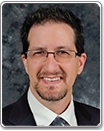

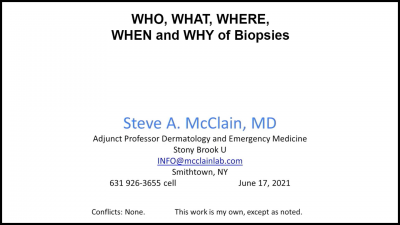
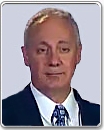



























Comments
There are 0 comments for this article